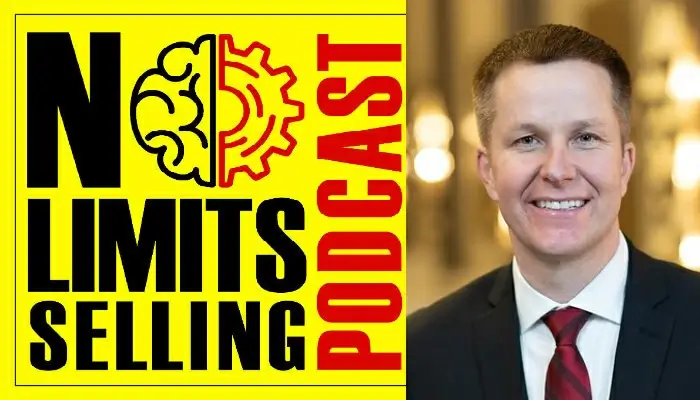Ryan O‘Neill on Re-imagining The Real Estate Industry
Ryan and I discuss what we could do differently to make new realtors successful faster. And strategies to reduce the number of realtors that quit the business because it was a lot harder than they thought.
Ryan O'Neill shares how he built a team that will do over $439M in real estate in 2018. Ryan knows his success is a result of building a great brand, a solid reputation, and a ton of goodwill with all of his agents and client base.
The youngest of five O’Neill siblings, Ryan grew up in New Prague, Minnesota and went on to graduate from the University of Notre Dame in 1997. As the founder and leader of The Minnesota Real Estate Team, Ryan began his real estate career in 2003 with an emphasis on investment property.
Over the years, Ryan is honored to have worked with so many outstanding clients from around the entire Twin Cities area in all types of real estate transactions. And currently, as the Broker and Sales Manager for the team, Ryan enjoys working with team members to ensure each and every client has a positive and successful experience when working with The Minnesota Real Estate Team.
Ryan is also half of the piano playing duo, “The O’Neill Brothers.” Ryan, his wife Kathy, and dog Pokey live in the Bloomington area.
Podcast Highlights:
- Realtors need to have passion if they want to last in this business
- All successful realtors have a strong work ethic
- Realtors need to be open to coaching, listening, and feedback

Contact Ryan:
- Website
- Facebook 2
[EDITOR’S NOTE: This podcast is sponsored by No Limits Selling. It is a fun, fast-paced podcast that delivers hard-fought business advice that you can implement today to improve your sales and performance]
Interested In Our Real Estate Coaching Services? Explore Our Website: Link
Feeling Not Well Today? You Can Use Our Mindset Boosters App To amp Up Your Mood: Link
Find us on Social Media:
LinkedIn | Facebook community | Instagram
Like what do you listen to? Subscribe to our podcast!
Ready to become fearless? We can help you become fearless in 60 days so you accomplish more in your career Schedule A 15 min Call with UmarSummary
Introduction
In the ever-evolving world of sales, Ryan O'Neill, a seasoned sales professional, shares his insights and experiences in a recent podcast. His wisdom, drawn from years of experience in the field, provides a fresh perspective on the art of selling. This summary, written in the style of The Guardian, Business Insider, and CNBC, aims to encapsively detail the key takeaways from the interview.
The Importance of Building Relationships
O'Neill emphasizes the significance of building relationships in sales. He argues that the foundation of successful selling lies in understanding the customer's needs and wants. This understanding, he says, comes from building strong relationships with customers, which allows salespeople to tailor their approach and offer solutions that truly meet the customer's needs. This approach, he believes, leads to increased customer satisfaction and loyalty, ultimately driving sales growth.
The Power of Persistence
Persistence, according to O'Neill, is another crucial factor in sales success. He shares anecdotes from his career to illustrate the importance of persistence, recounting instances where his tenacity led to breakthroughs with difficult clients. He encourages salespeople to stay the course, even when faced with rejection, arguing that persistence often pays off in the long run.
Adapting to Change
O'Neill also discusses the importance of adaptability in sales. He notes that the sales landscape is constantly changing, with new technologies and shifting customer expectations continually reshaping the field. Salespeople, he argues, must be willing to adapt to these changes, learning new tools and techniques to stay ahead of the curve. He suggests that those who embrace change and are willing to evolve with the industry are the ones who will find the most success.
Re-imagining The Real Estate Industry
The conversation also touches on the role of technology in sales. O'Neill acknowledges that while technology can be a powerful tool for salespeople, it should not replace the human element of sales. He argues that technology should be used to enhance the sales process, not replace it, and that the most successful salespeople are those who can effectively balance the use of technology with personal interaction.
Conclusion
In conclusion, O'Neill's insights provide a valuable roadmap for anyone looking to succeed in sales. His emphasis on relationship-building, persistence, adaptability, and the judicious use of technology offers a comprehensive guide to navigating the complex world of sales. As the sales landscape continues to evolve, these insights will undoubtedly remain relevant and valuable.
Questions & Answers
What is the main focus of Ryan O'Neil's podcast?
What does Ryan O'Neil say about the importance of building relationships in sales?
What are O'Neil's thoughts on adaptability in the sales landscape?
How does Ryan O'Neil perceive the role of technology in sales?
What are the key takeaways from Ryan O'Neil's podcast?
Don’t miss this opportunity to transform your real estate career with one-on-one coaching. As an experienced real estate coach, I, Umar Hameed, am dedicated to helping you unlock your full potential and achieve your real estate goals. To learn more about who am I and my clients ↓
If you’re ready to take the next step, book an appointment with me today and begin your journey toward success in the real estate industry.
